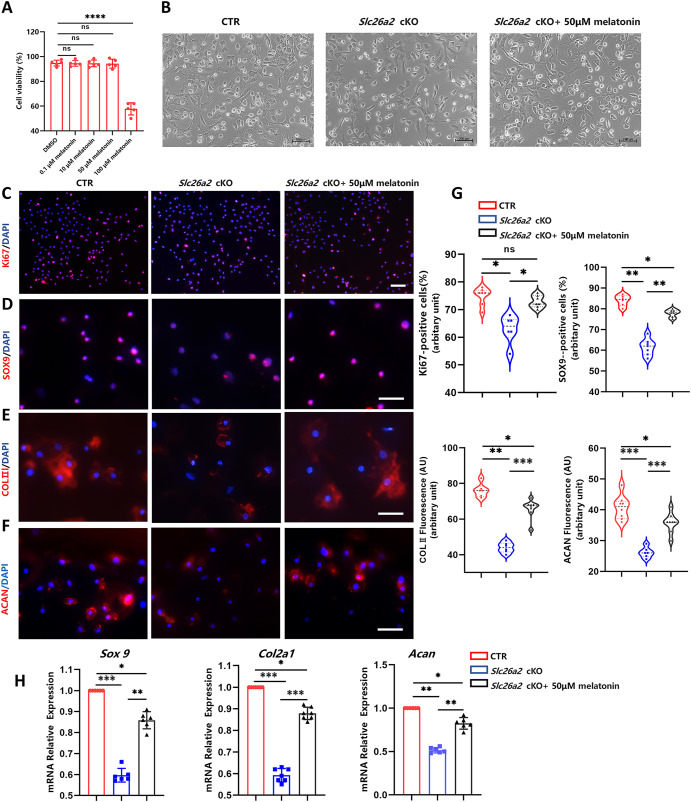
Melatonin ameliorates Slc26a2-associated chondrodysplasias by attenuating endoplasmic reticulum stress and apoptosis of chondrocytes


Although the pathogenesis and mechanism of congenital skeletal dysplasia are better understood, progress in drug development and intervention research remains limited. Here we report that melatonin treatment elicits a mitigating effect on skeletal abnormalities caused by SLC26A2 deficiency. In addition to our previous finding of endoplasmic reticulum stress upon SLC26A2 deficiency, we found calcium (Ca2+) overload jointly contributed to SLC26A2-associated chondrodysplasias. Continuous endoplasmic reticulum stress and cytosolic Ca2+ overload in turn triggered apoptosis of growth plate chondrocytes. Melatonin, known for its anti-oxidant and anti-inflammatory properties, emerged as a promising therapeutic approach in our study, which enhanced survival, proliferation, and maturation of chondrocytes by attenuating endoplasmic reticulum stress and Ca2+ overload. Our findings not only demonstrated the efficacy of melatonin in ameliorating abnormal function and cell fate of SLC26A2-deficient chondrocytes in vitro but also underscored its role in partially alleviating the skeletal dysplasia seen in Col2a1-CreERT2; Slc26a2fl/fl mice. As revealed by histology and micro-CT analyses, melatonin significantly improved retarded cartilage growth, defective trabecular bone formation, and tibial genu varum in vivo. Collectively, these data shed translational insights for drug development and support melatonin as a potential treatment for SLC26A2-related chondrodysplasias.
